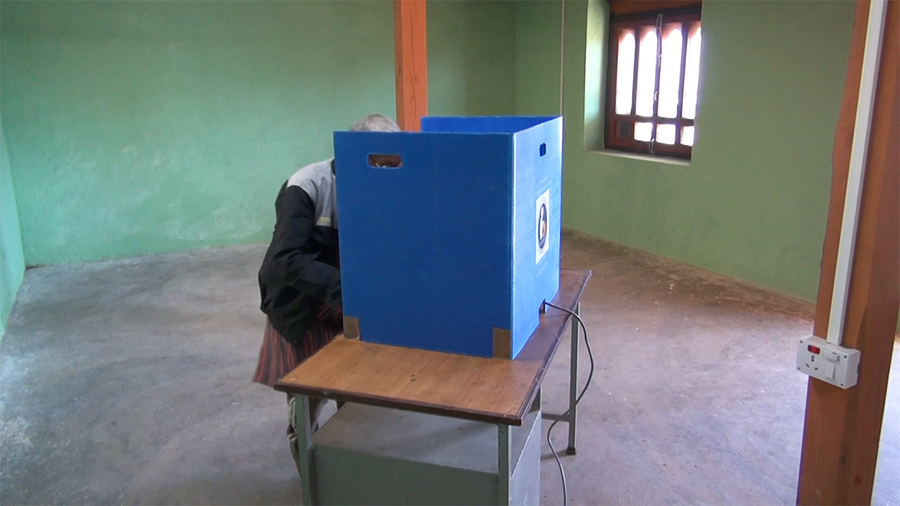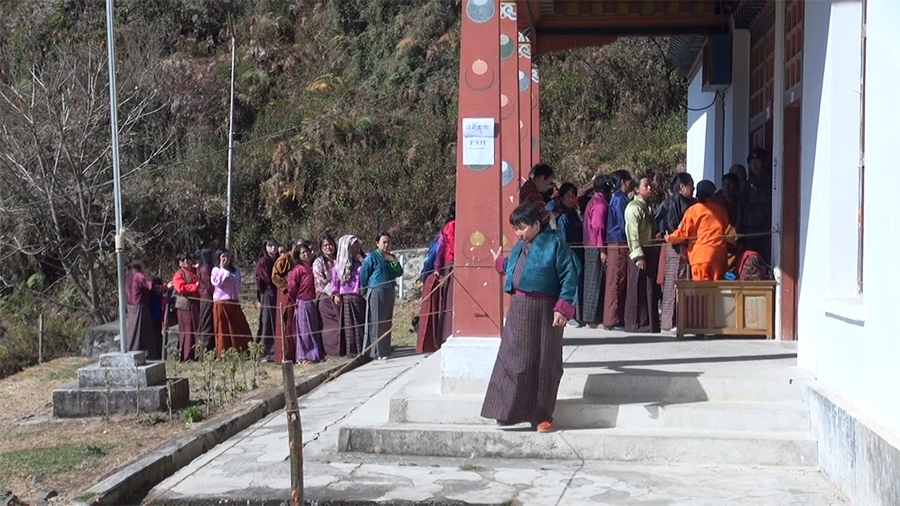
In any election in the country, as mandated by the Election Act, Electronic Voting Machines, EVM results are announced at respective polling stations at the end of the polls. However, residents in areas with fewer registered voters allege that this practice compromises the secrecy of their vote and may lead to political favouritism once a party or a candidate is elected.

The Election Act of Bhutan 2008 states that the counting supervisor shall announce the EVM result to every candidate or their representative present at the polling station and present them with a copy of the result sheet.
However, voters are worried that providing EVM voting results from polling stations makes it easier for candidates to identify their supporters. Moreover, they said it could potentially compromise the secrecy of their vote.
People said this leads to a political party or candidate that wins to bring in selective development and give preferential treatment to voters that supported them.
The voters are urging the Election Commission of Bhutan to announce the total votes cast for the entire constituency or district in future elections together and not give the breakdown of votes for every polling station.
“The election office makes sure we cast our votes secretly but at the end of the day, they declare the results. It becomes evident which village or chiwog supported a candidate and which did not. So, once the candidate gets elected, it becomes a problem. I have seen and heard of favouritism taking place,” said Shantong, a resident of Kanglung Gewog in Trashigang.
Dendup Dema, a former Mangmi of Shongphu Gewog in Trashigang said, “Since I have participated in local government elections, I can say that the candidate can know who has supported and who has not supported from a particular area while announcing the result.”
“For the Local Government elections, it would be good if they declare the results at the gewog level. Likewise, for the National Assembly and the National Council elections, the results should be declared at the constituency or district level. This will help minimise favouritism in future. I request the election office to not announce the result at the polling stations,” said Tshewang Gyeltshen, a former Mangmi of Yangnyer Gewog in Trashigang.
Tandin Wangchuk, a resident of Kanglung Gewog said, “In a small community, if there are around 40 voters and if 10 of them vote for the winning candidate, the candidate tend to know who voted for him or her and who haven’t when results are declared at the polling stations. This is particularly prevalent in small communities where people have to deal with each other daily.”
To this, the Election Commission of Bhutan said since no polling station in the country has less than a hundred registered voters, it is impossible to identify the supporters from non-supporters.
The commission also said that the votes cast will remain confidential.
“The reason we are declaring our election results at polling stations is that we believe in transparency. Announcing the number of votes for each party or the candidate secured from each polling station makes it more transparent. Unless somebody says that I voted for party A or candidate B, nobody will know,” said Phub Dorji, the Director of the Secretariat with the Election Commission of Bhutan.
Despite rural people asking the commission to revisit the current practice of declaring voting results, the ECB says the commission will continue to declare EVM results at the polling stations as mandated by the Election Act.
Sonam Darjay, Trashigang/ Kinzang Lhadon
Edited by Sangay Chezom







